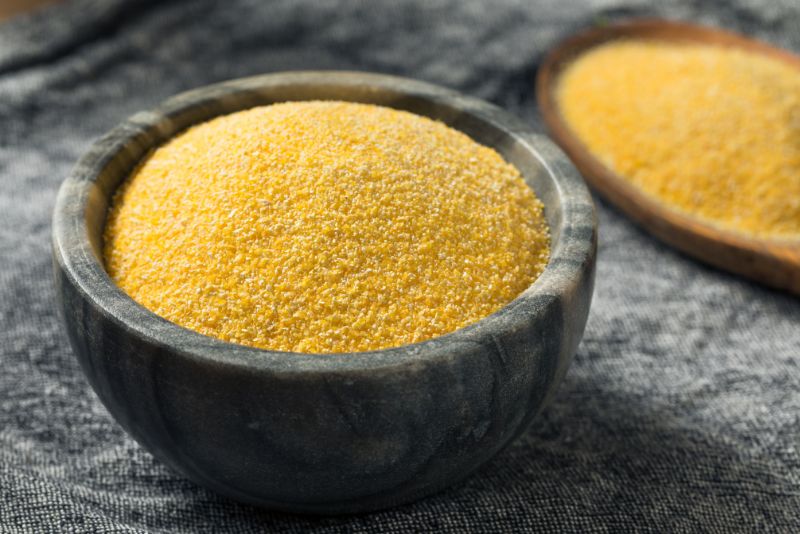Are you looking for a delicious, healthier alternative to cornmeal? If so, you’re in luck! In this blog post, I’ll take a look at some of the best substitutes for cornmeal that are both tasty and nutritious. From corn flour to polenta, there’s something for everyone. So read on and find out which substitute is right for your cooking needs.
Table of Contents
15 Substitute for Cornmeal
The best substitute for cornmeal are corn flour and corn grits. You can also use polenta, corn flakes, and Semolina as cornmeal substitute.
Keep reading to learn more about these alternatives and how to use them in your recipes.
1. Corn Flour
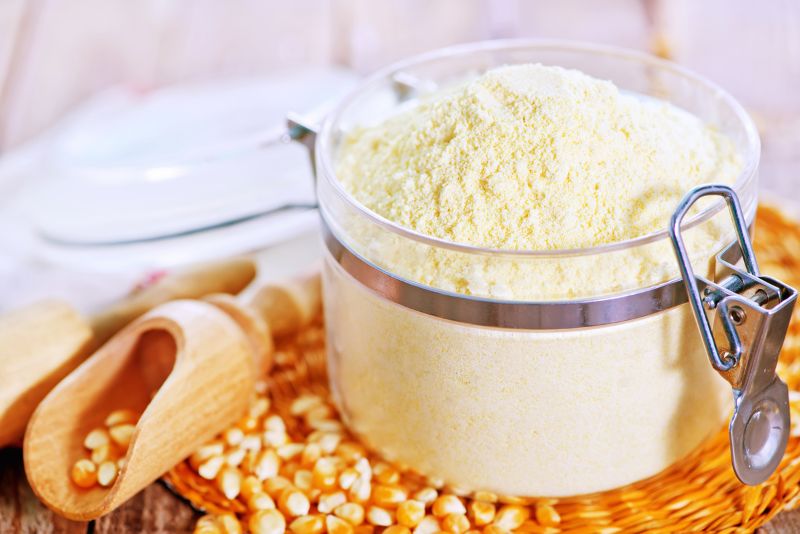
Corn starch is known as corn flour in the United Kingdom. Corn starch is a considerable starcher powder used for a completely different purpose and cannot be used as a substitute for cornmeal.
Conversely, corn flour has a distinct texture but the same corn flavor as it is simply refined ground cornmeal. If you want to use cornmeal in a sauce or as a thickener for soups or stews, corn flour is a great substitute. You will get the same corn flavor from the fine powder.
Cornmeal is a versatile flour that can be used in place of corn flour for various purposes. It is made from ground maize and can be used as a thickener, binder, or emulsifier – perfect for baking recipes that require corn flour. It also happens to be an excellent grain substitute in many baking recipes, helping you cut down on calories and carbs.
For example, polenta can easily be made by combining cornmeal with cold water and simmering until it forms a soft consistency – usually taking around 20-30 minutes. Remember to adjust the consistency according to how much milk you use – if it’s too thick, add more water until it reaches your desired texture.
And lastly, always store cornmeal in an airtight container to keep it fresh and crispy!
2. Corn grits
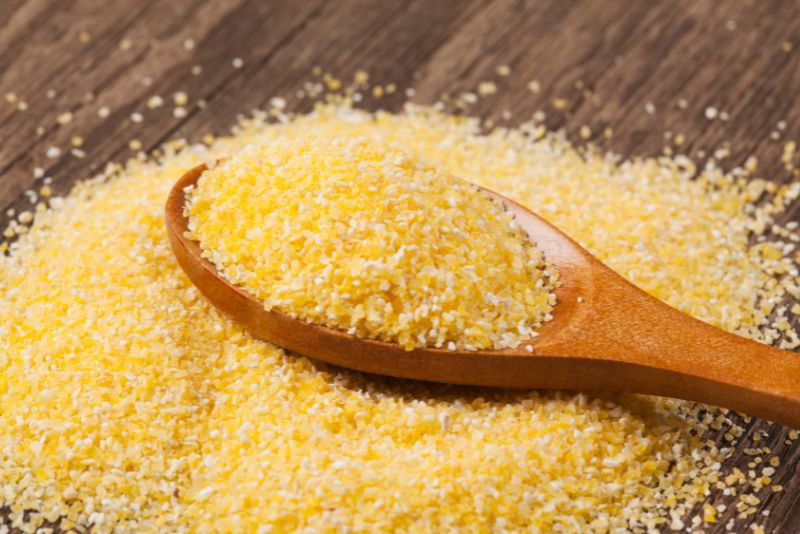
The coarser kind of white cornmeal is called corn grits. Grits will impart the same flavor because they come from the same portions of the maize plant. The texture will be different.
Grits will give foods a grainier consistency, which, depending on your preferences, can be both a desirable and an unpleasant aspect. Corn grits are a versatile substitute for cornmeal in many recipes. They can be used as a binding agent, thickener, or flavoring ingredient in baked goods, sauces, and gravies.
They’re also great as an appetizer, side dish, or main course. In addition to their culinary benefits, corn grits are Loaded with nutrients including dietary fiber and minerals such as manganese and magnesium.
Store them in an airtight container to keep them tasting fresh and flavorful. For best results grind the grits fresh before using them so they release their flavor fully.
3. Polenta
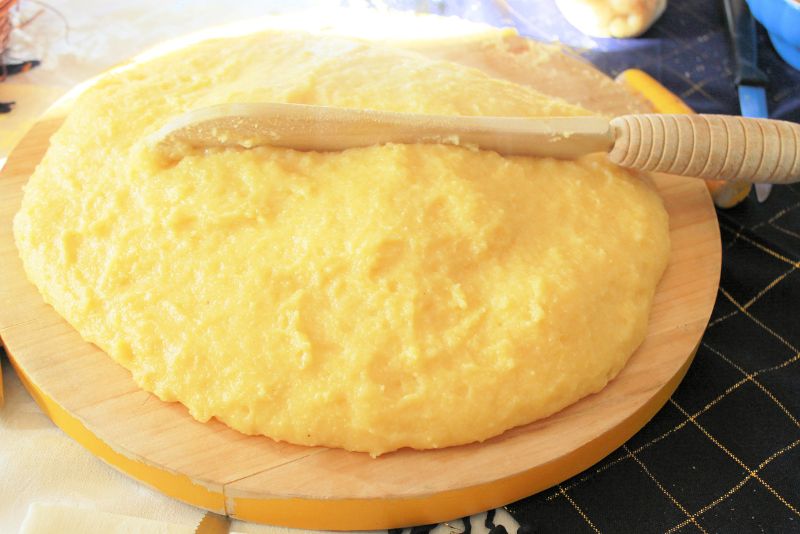
Northern Italian dish polenta is marketed in supermarkets as coarser cornmeal that resembles corn grits but is significantly coarser. Although the textures are different, the flavors are the same. Polenta is made from ground corn that has a somewhat rougher texture.
This is one of the better substitutes you can use if you have polenta on hand. The texture will be the only distinction. You may refine polenta in a blender or food processor, much like you would grits.
Polenta is a cornmeal mush that can be used as a substitute for cornmeal in many dishes. It has a creamy texture and can be served as a side dish or even as dessert, making it an ideal option for those with gluten sensitivities.
Polenta can also be cooked on the stove, in the oven, or even in the microwave – making it very versatile. If you are looking for an alternative to cornmeal, the polenta should definitely be your go-to choice! Polenta can also be stored in the fridge for up to 3 days and reheated in the oven or microwave.
4. Corn flakes
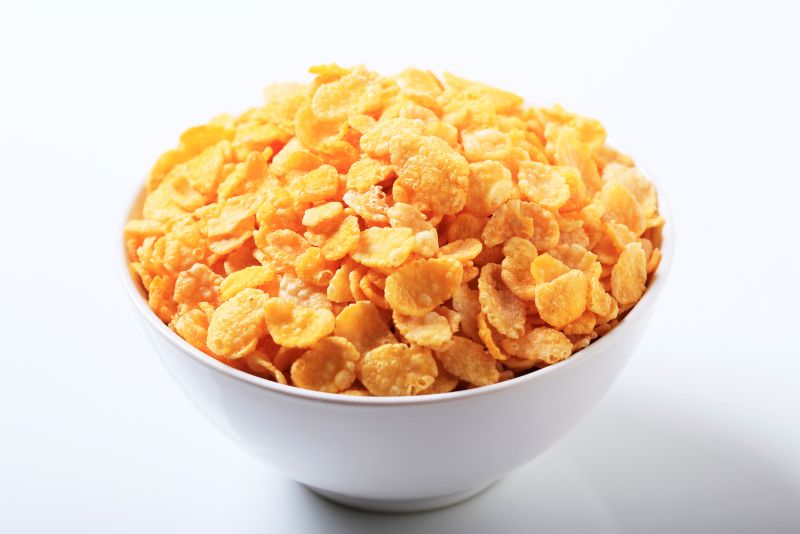
The cornflakes can be used in place of cornmeal if you smash them up. The outcome will be comparable to tortillas or corn chips. The main benefit of cereals is their wide variety, making it simple to locate a cereal that will work for your recipe.
Additionally, there’s a good probability that you already have it at home. Cornflakes are a popular breakfast cereal and can be used as a substitute for cornmeal. They are light, airy, and have a sweet taste – perfect for breakfast or snack time.
They can also be used in various baking recipes – from pancakes to muffins. Keep in mind that cornflakes are not nutritionally rich and should not be eaten on their own as a meal replacement. Beware of using too many cornflakes as they can be dense and heavy. Store them in an airtight container to keep them fresh and crunchy!
5. Tortilla chips
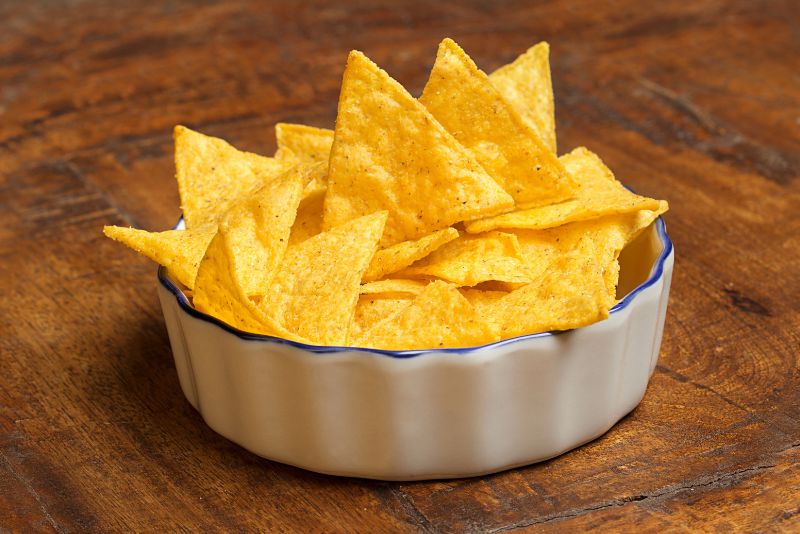
Tortilla chips are a delicious and versatile snack option that can be used in many different dishes. They’re crispy, savory, and perfect for satisfying cravings. They make an ideal substitute for cornmeal in recipes – try them out today!
You can also use them as an appetizer, side dish, or snack- all at once or separately depending on your preference. In addition to their culinary uses, tortilla chips make great coatings for chicken breasts or fish fillets.
They are gluten-free, so they’re perfect for people with food restrictions of any kind. Make sure to stock up on tortilla chips before they disappear from stores forever!
6. Masa harina
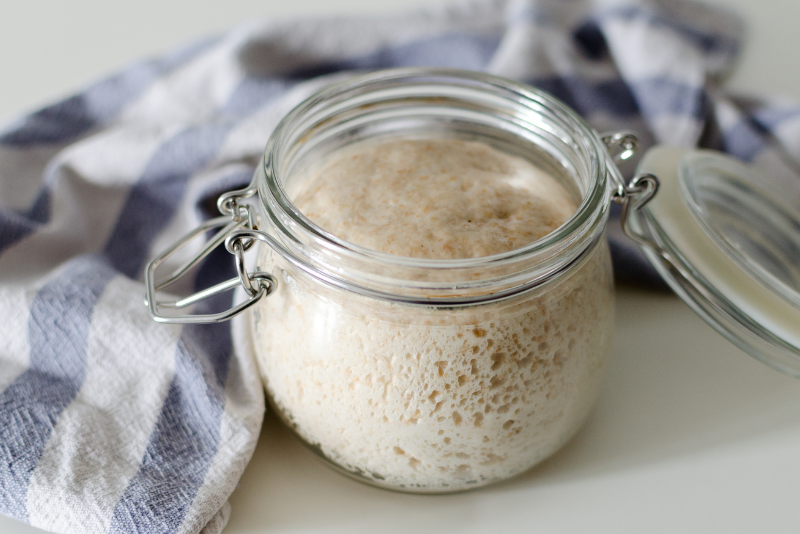
It’s a form of flour created by cooking and soaking dried maize kernels in a lime solution. Pizza dough and tortilla dough are both made with it. It is incredibly refined, much like wheat flour, yet it can still be substituted in some recipes.
Masa harina is corn flour that can substitute for cornmeal in many recipes. It has a slightly sweet flavor and can be used to make dishes like polenta, tortilla soup, and tamales. Masa harina is also great for breading or coating meats, vegetables, or carbs before baking.
It has a more complex flavor than regular cornmeal and gives your food a more interesting texture. Masa harina is best used in savory dishes – it adds depth of flavor to food that might otherwise be bland or tasteless (think tacos or enchiladas).
7. Hominy grits
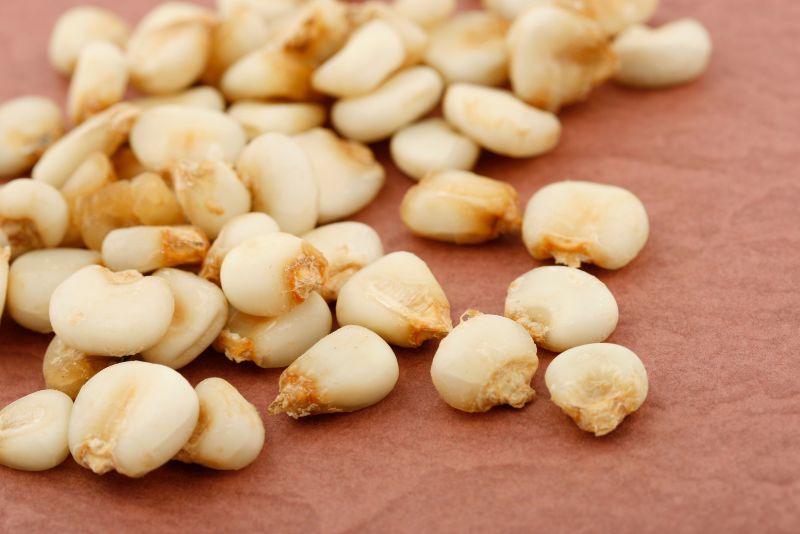
Hominy grits are a great substitute for cornmeal in many recipes. They have a slightly different flavor, but are still versatile and can be used in various ways – as breakfast cereal, as an ingredient in breading or sauces, etc.
A great substitute for cornmeal is hominy grits. They are nutritious and filling meals that can be used in various recipes – such as tacos, burritos, or enchiladas – to give them more flavor and variety.
They also happen to be gluten-free which makes them perfect for people with food allergies or sensitivities. Store them properly- airtight container- so they stay fresh and crispy!
8. Semolina
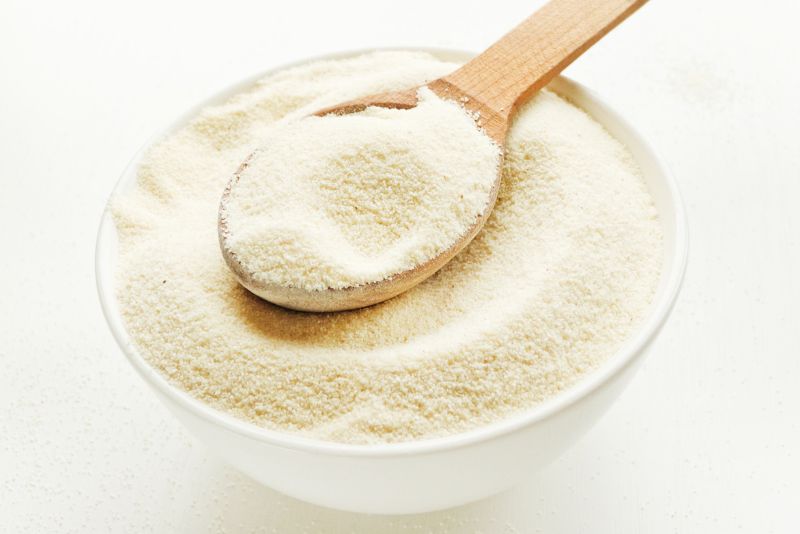
Semolina also makes a great substitution. It is derived from durum wheat, has a high mineral content, a mildly nutty flavor, and is used in cooking similarly to cornmeal. Semolina is a great flour substitute that can be used in baking, breading and flour replacement.
It has a nutty flavor and can also be used in sweet or savory dishes. Semolina is gluten-free which makes it suitable for vegan baking recipes. Unlike cornmeal, semolina doesn’t have any gluten so it can also be used as an egg substitute for people with food allergies or celiac disease symptoms.
Apart from its culinary benefits, semolina is also healthful because of its high protein content (~14%). Additionally, it has a beautiful golden color that will add an extra touch of glamour to your meals!
9. Ground oats
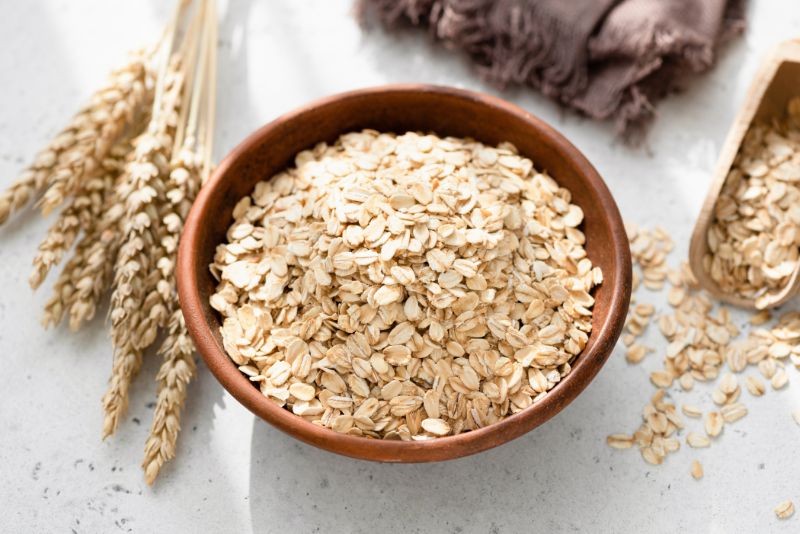
Ground oats are a great substitute for cornmeal and can be used in many baking recipes. They have a less floury and slightly different texture, making them ideal for substituting cornbread, muffins, pancakes, etc.
Oats are gluten-free and have a high fiber content which makes them perfect for people with dietary restrictions or allergies to wheat.
They also offer health benefits such as lowering blood sugar levels and reducing the risk of heart disease or diabetes. Store ground oats in an airtight container to prevent them from going stale- they will last up to two months this way.
10. Wheat flour
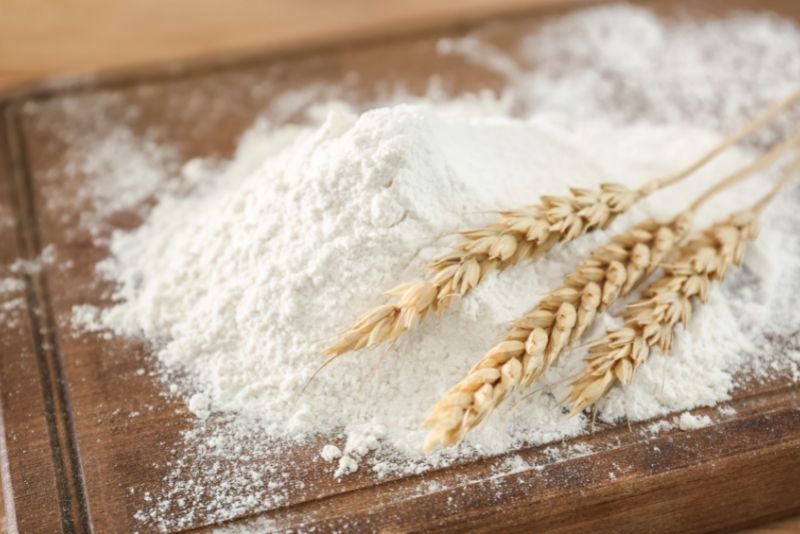
Wheat flour is a great substitute for cornmeal when baking and cooking. It can be used in place of flour in bread, pancakes, waffles etcetera. Wheat flour also has a different texture to other flours so it may require some extra attention when preparing food.
However, it’s gluten-free and has similar baking properties to cornmeal making it an ideal substitution for people with gluten sensitivities or wheat allergies.
Keep in mind that wheat flour doesn’t hold its shape as well as regular cornmeal so you might need to adjust your recipe accordingly – though this shouldn’t be too much of a problem given the many other substitutes available these days!
11. Rice flour
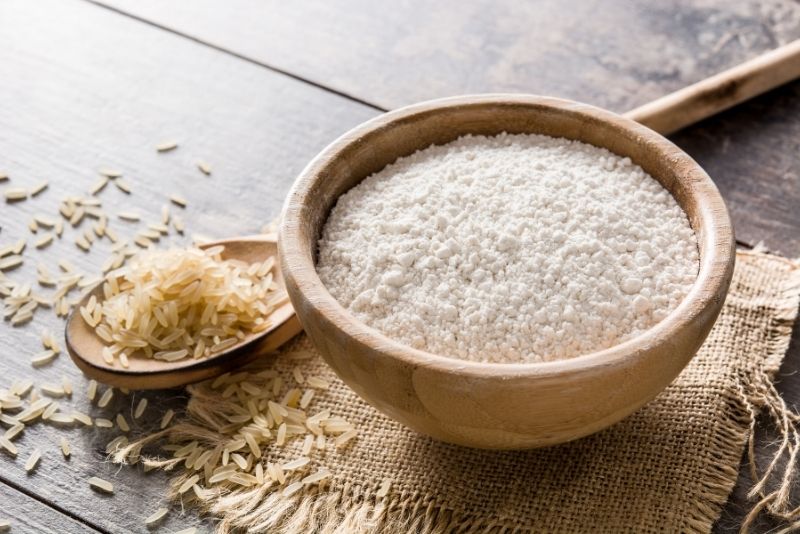
If you are looking for a gluten-free substitute for cornmeal, rice flour is a great option. It can be used as a binder in recipes or as an ingredient in its own right.
Additionally, it has a slightly sweet taste and is similar to cornmeal in texture and flavor. Rice flour can be found at most grocery stores and it is also available online.
12. Ground flaxseed
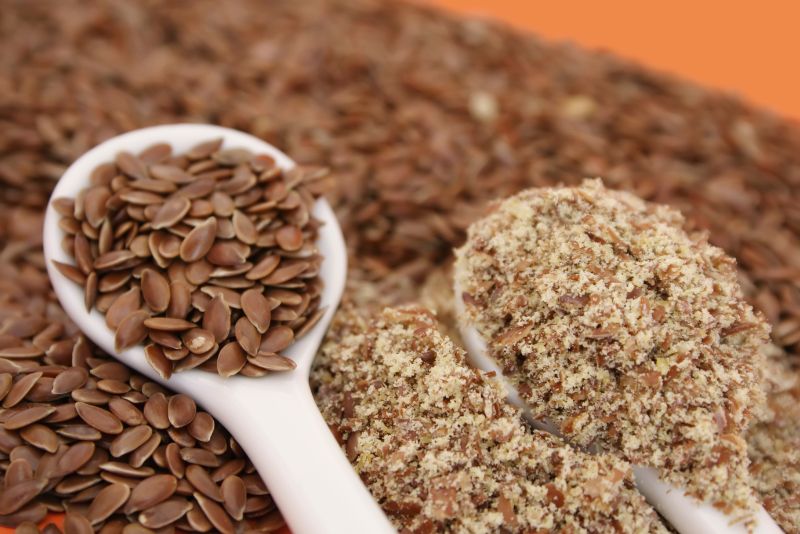
If you’re looking for a low-carb alternative to cornmeal, ground flaxseeds can be a fantastic choice. But if you want to gain more health advantages, you should be willing to give up some of the dish’s flavor (flaxseeds have a mildly bitter flavor).
They have a higher protein content and less carbohydrate and starch. Remember that eating flaxseeds with foods that are high in fiber will have the best results.
Ground flaxseed is a great substitute for cornmeal in baking and other dishes. It is also a good source of fiber, vitamins, and minerals. Moreover, it can be used to make bread, pancakes, waffles etcetera – just grind the seeds first and then use them as required. Its nutty flavor makes it perfect for replacing any grain flour in recipes.
13. Breadcrumbs
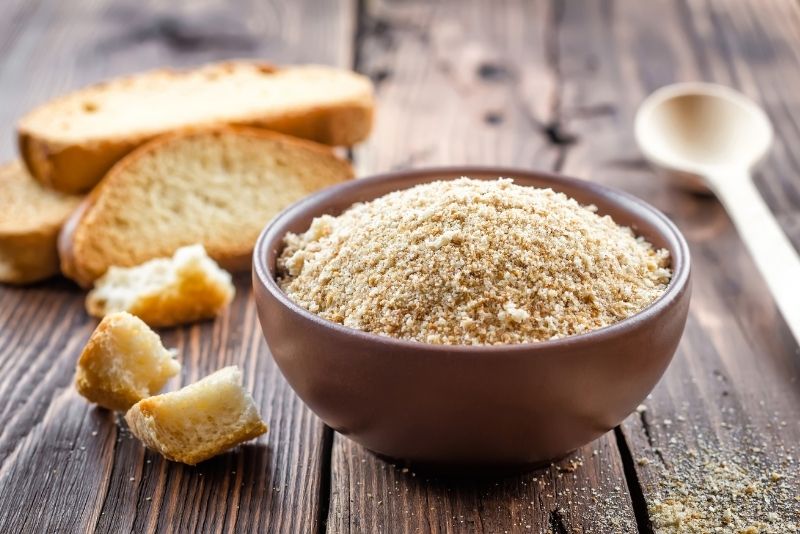
Breadcrumbs are a staple ingredient in many recipes, but if you’re looking for an alternative that’s gluten-free and vegan, almond flour is a great option.
Its texture is similar to breadcrumbs and it can be used as a substitute for cornmeal or bread crumbs in most baking recipes.
You can also use it as a coating on food or to season dishes. Almond flour is gluten-free, making it perfect for people with dietary restrictions or allergies.
14. Nuts

Nuts are a great source of dietary fiber, protein, and healthy fats. They can be used in baking, pancakes, and waffles, as well as on their own as snacks.
Add them to salads, soups, or stews for added flavor.
Store nuts in a cool and dry place to prevent them from going rancid.
15. Cereals
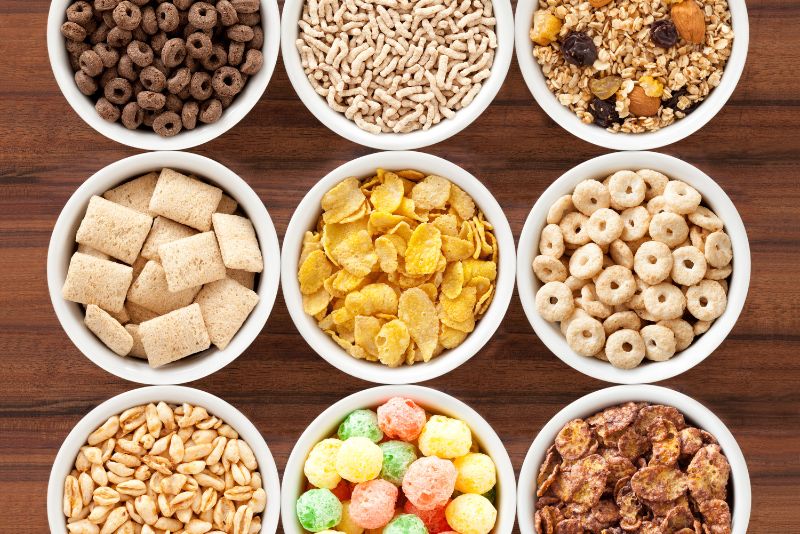
Variety, though, is cereal’s main benefit. There are so many varieties of cereal, making it simple to choose one that will go with the meal you’re attempting to cook. Corn-based cereals, such as cornflakes, provide a great straight replacement. The flavor will end up tasting pretty much like how actual cornmeal would have.
While other cereals may not taste quite as good as cornmeal, they do have different flavors and textures that may complement your meal more. Simply put, there will probably be a cereal that you can combine and use in place of cornmeal.
However, as a general guideline, you’ll generally want to pick less sweet or chocolaty cereals in favor of more straightforward flavors like cornflakes.
How Does Cornmeal Taste Like?
Since the whole corn kernel is used to make cornmeal and corn flour, they have a strong corn flavor.
Frequently Asked Questions
1. Can I use plain flour instead of cornmeal?
Yes, you can substitute cornmeal with plain flour when baking. This is because flour is a better option as it doesn’t contain gluten which may cause issues for people with celiac disease or wheat allergies. Additionally, the flour helps to make the final product more elastic and chewy than cornmeal does.
2. Can you substitute cornstarch for cornmeal?
Yes, cornstarch can be substituted for cornmeal in several recipes. Cornstarch is slightly more absorbent and has a finer texture than cornmeal which makes it perfect for some baking applications. Cornstarch also produces a different flavor when baked so you’ll need to experiment with different recipes to find the one that you like best.
3. Can I substitute panko bread crumbs for cornmeal?
Yes, you can substitute panko bread crumbs for cornmeal in most recipes. Panko is a Japanese breadcrumb that has a more crispy texture than regular bread crumbs. Cornmeal is best used in savory dishes as it gives them a nutty flavor and improves the binding properties of your recipe.
